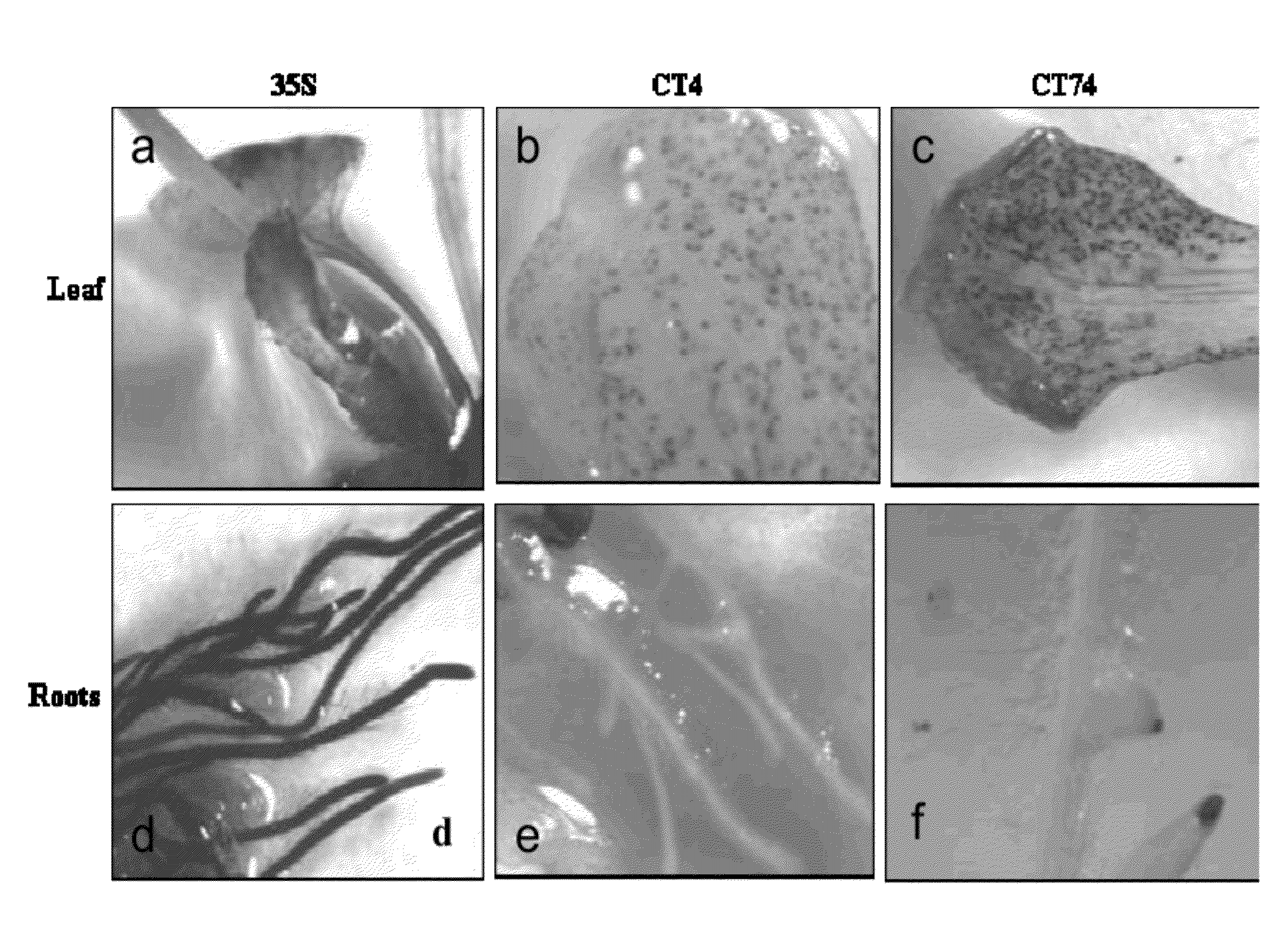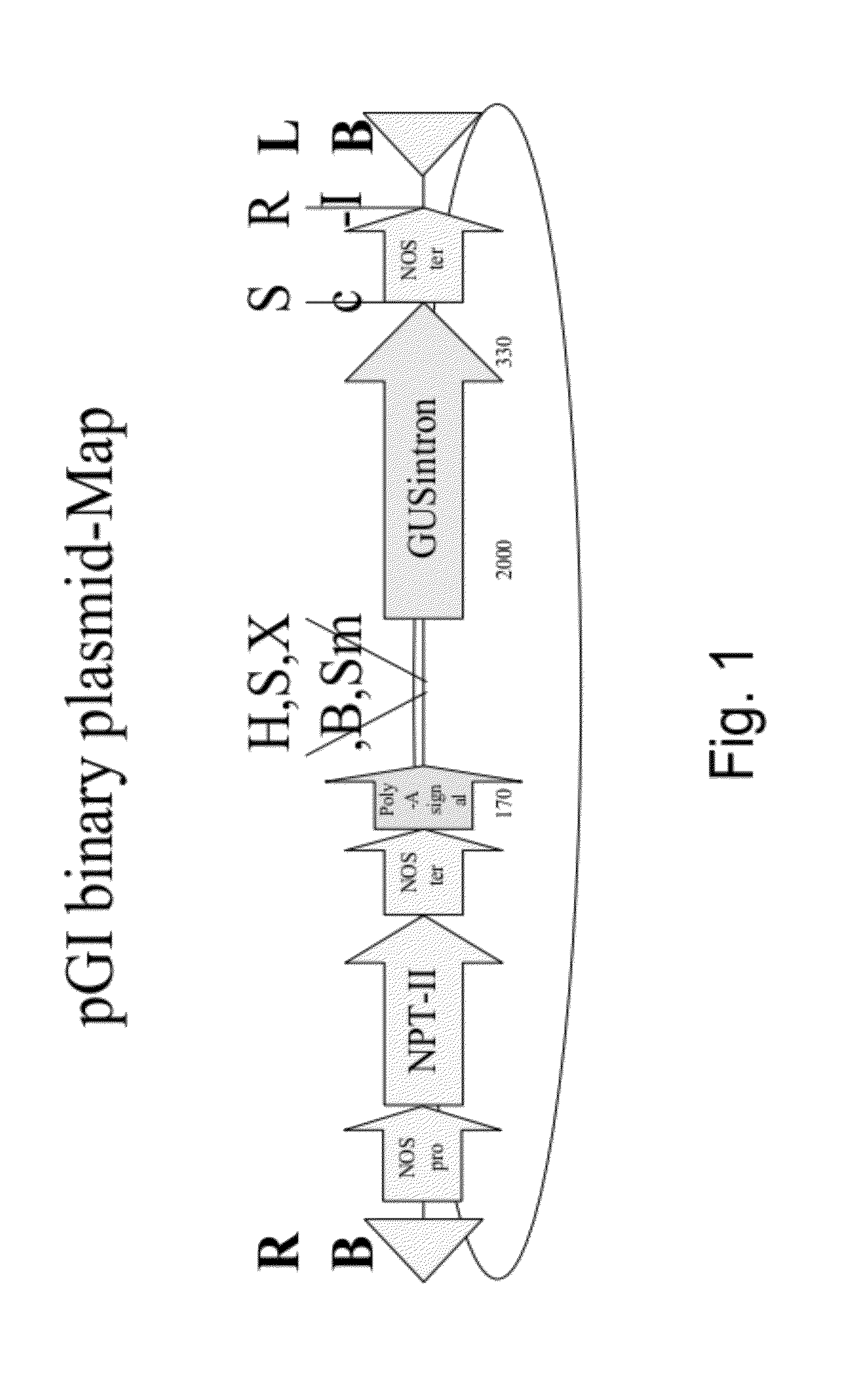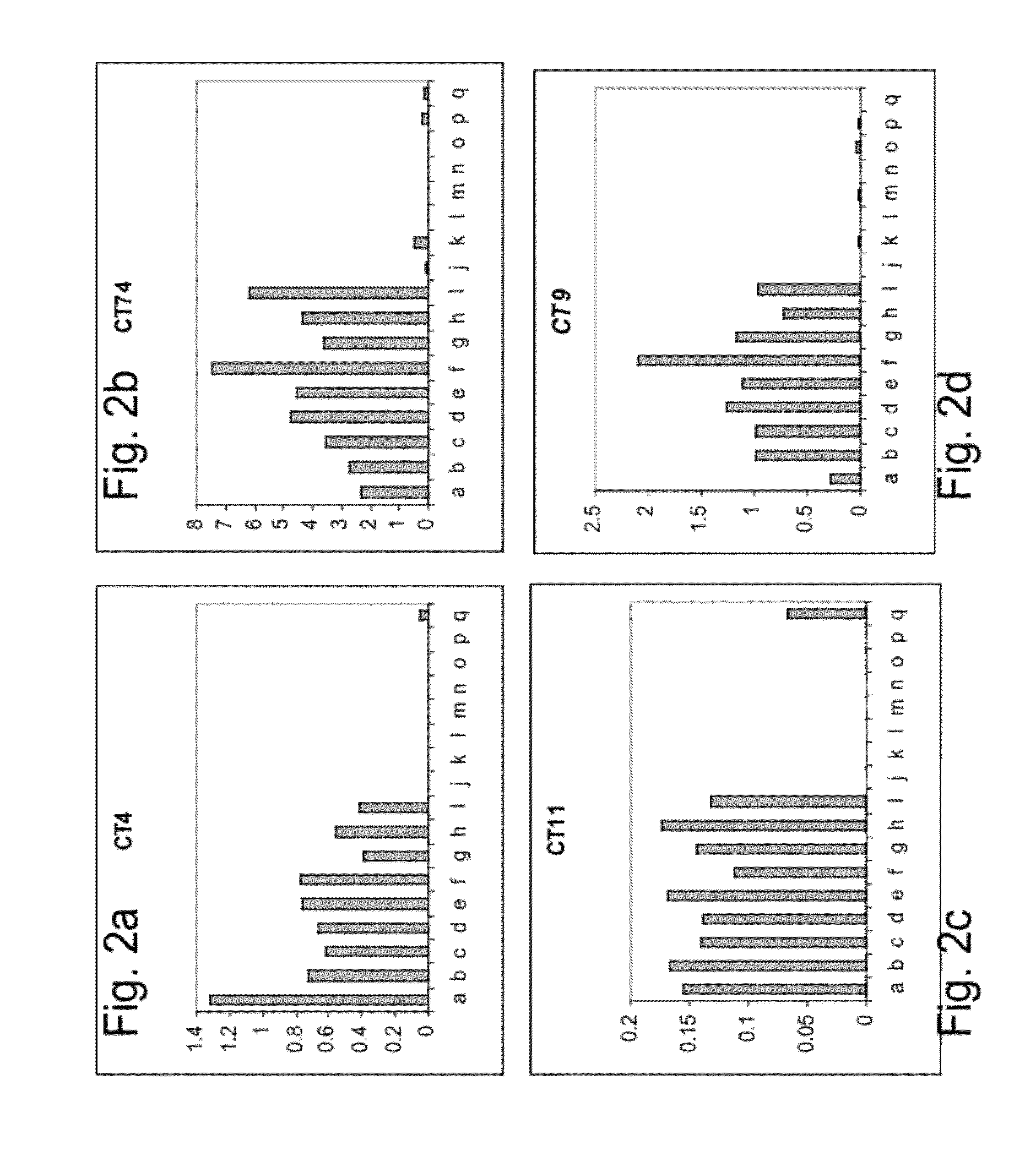Polynucleotides and polypeptides involved in plant fiber development and methods of using same
a technology of polypeptides and plant fibers, applied in the field of polypeptides and polypeptides involved in plant fiber development, can solve the problems of increasing the vulnerability of the crop to environmental conditions, affecting the yield and fiber quality, and reducing so as to increase the yield of plants, and increase the vigor of plants
- Summary
- Abstract
- Description
- Claims
- Application Information
AI Technical Summary
Benefits of technology
Problems solved by technology
Method used
Image
Examples
example 1
Identification of Gene Clusters Involved in Plant Fiber Development
[0219]Bioinformatics Analysis
[0220]In silico identification of cotton genes involved in fiber formation—Putative cotton genes involved in fiber formation were selected from NCBI databases of cotton expressed sequence tags (ESTs) and cDNAs. The database sequences were clustered and assembled using the LEADS™ software (Compugen, Tel Aviv, Israel). Clustering resulted in more than 18,700 clusters, each representing a different gene. An expression profile summary was compiled for each cluster by pooling all keywords included in the sequence records comprising the cluster. Genes over-expressed in fiber initiation and elongation phase were isolated. The clusters were then screened to include polynucleotides originating from libraries of addition elongated tissues such as root tips, xylem and tissues exposed to etiolating conditions. Since the main force that acts in order to elongate the cell is the cell turgor, in additio...
example 2
Analysis of mRNA Expression Profiles of Genes Involved in Plant Fiber Development
[0221]To study the RNA expression profile of candidate genes identified as described in Example 1 above, a reverse transcription reaction followed by real time PCR (RT-qPCR) was performed on RNA extracted from cotton plants at different stages of fiber development, as follows.
[0222]Experimental Procedures
[0223]Quantitative Real time PCR analysis (qRT PCR)—To verify the levels of expression specificity and trait-association, Reverse Transcription following quantitative (Real-Time) PCR (RTqPCR) was performed. Total RNA was extracted from cotton plants at different stages of fiber development (from the day of anthesis till day 20—post anthesis). To study the specificity of expression, RNA from other tissues of the cotton plants were collected and analyzed for control expression (i.e., young leaves, young stems, mature stems, young roots, sepals, petals, and stamen). For this purpose, RNA was extracted from...
example 3
Identifying Correlation Between Expression of Candidate Genes and Fiber Length
[0230]The correlation between fiber length and expression of the candidate genes was determined in 10 different cotton lines representing a wide variety of fiber length characteristics, as follows.
[0231]Experimental Procedures
[0232]Cotton lines—The 10 different cotton lines representing wide variety of fiber length characteristics included earlier G. hirsutum varieties (SA217SD and SA68SD), G. hirsutum varieties (Tamcot, Macnair, DP90 and ZG236) F1 hybrid of G. hirsutum and G. barbadense (Acalphi) and high quality of pima type (G. barbadense) (S7 and Pima).
[0233]RNA extraction—Fiber development stages, representing different fiber characteristic, at 5, 10 and 15 DPA were sampled and RNA was extracted as described in Example 2, hereinabove.
[0234]Fiber length assessment—Fiber length of the above lines was measured using a fibrograph. The fibrograph system was used to compute length in terms of “Upper Half Me...
PUM
 Login to View More
Login to View More Abstract
Description
Claims
Application Information
 Login to View More
Login to View More - R&D
- Intellectual Property
- Life Sciences
- Materials
- Tech Scout
- Unparalleled Data Quality
- Higher Quality Content
- 60% Fewer Hallucinations
Browse by: Latest US Patents, China's latest patents, Technical Efficacy Thesaurus, Application Domain, Technology Topic, Popular Technical Reports.
© 2025 PatSnap. All rights reserved.Legal|Privacy policy|Modern Slavery Act Transparency Statement|Sitemap|About US| Contact US: help@patsnap.com



